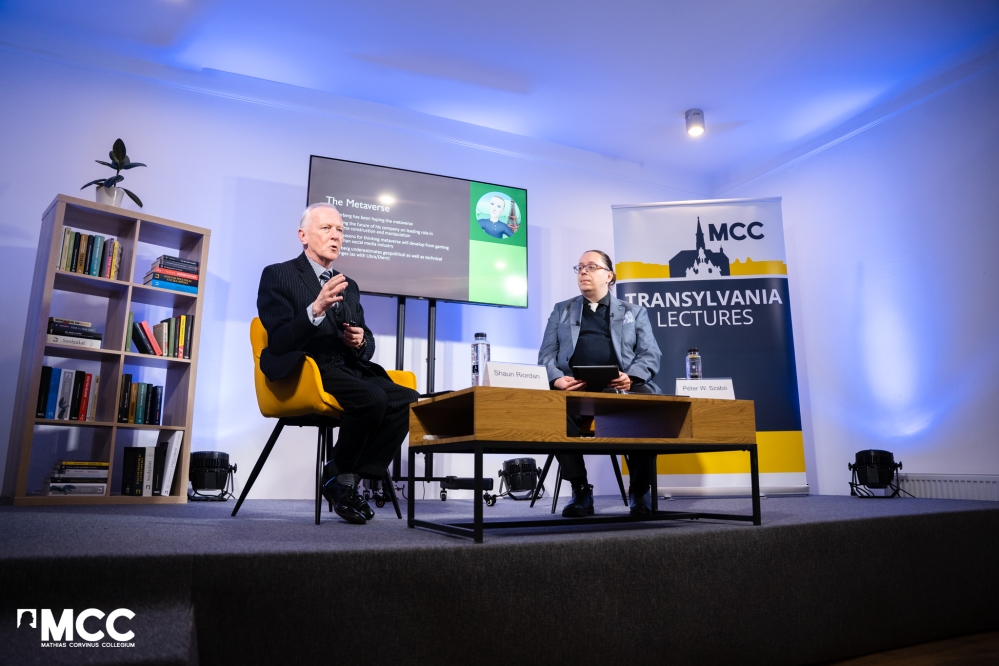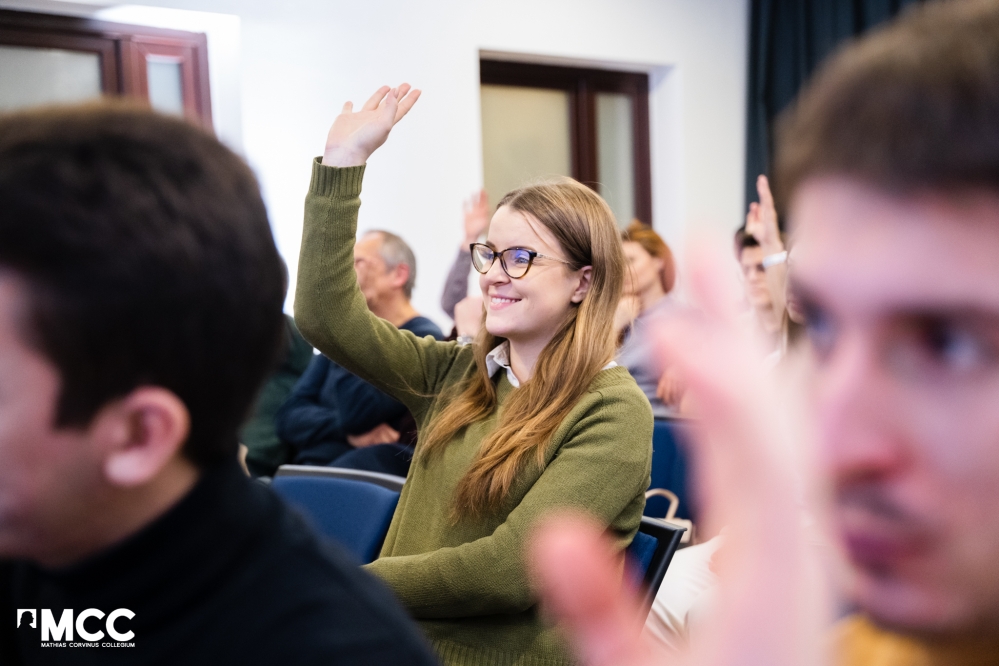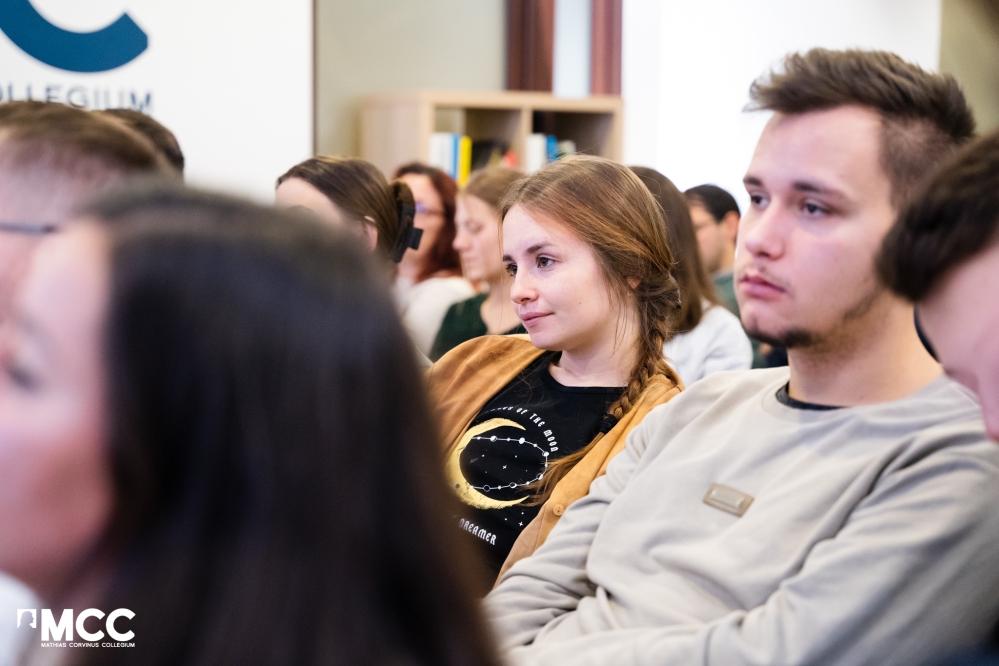Reading time: 4 minutes
There is no need for it, yet Mark Zuckerberg's Metaverse is in full swing, facing serious technological, economic, and geopolitical problems. There is also a strong possibility that the world's other superpowers will want to have their own virtual reality, creating new conflicts and new challenges for diplomacy. These and related issues were addressed by former British diplomat Shaun Riordan at the Mathias Corvinus Collegium’s (MCC) Transylvania Lectures series.
The guest of the Transylvania Lectures’ latest discussion was Shaun Riordan, Director of the Department of Diplomacy and Cyberspace at the European Institute of International Studies. He began his diplomatic career in 1984, serving in New York, Taiwan, Beijing and Madrid, as well as in the UK Foreign Office. For the past twenty years he has been studying innovation in diplomacy and the impact of technological change on geopolitical risk. His work has resulted in four books and numerous articles and book chapters.
The discussion titled The Geopolitics and Diplomacy of the Metaverse took place at the MCC Centre in Kolozsvár/Cluj Napoca on Tuesday 22nd of November. The event was opened by Ákos Péter, a student of the MCC's University Program, and moderated by Péter W. Szabó, IT specialist and founder of Tengr.ai and the Transylvanian Hungarian Innovation and Technology Society.
Shaun Riordan has found that diplomats are not tech-savvy, and was interested in how they could tackle the topic of cybersecurity or artificial intelligence, the fight for microchips or the future metaverses in diplomacy. The Metaverse has become known since Mark Zuckerberg put it at the heart of Facebook's work and changed the company's name to Meta. Alternate reality will be available through VR devices and will run parallel to the physical world. But Zuckerberg underestimated the technological and geopolitical challenges. Building meta-realities brings a number of technical and commercial challenges with it: limited computing capacity, inadequate internet service, operational problems and competition between meta-realities. In addition, if there is to be a money-spending opportunity in the Metaverse, there will be a need to protect ownership and control contracting. For technical reasons, access will be much more limited (e.g. VR devices cost twice the Romanian minimum wage) than the internet, and this will cause further social divisions.
The concept of the Internet was born in a different geopolitical context: in the late 1980s the United States was in a dominant position, but today we have to take into account the major economic players in the world, so there is little chance of a single metaverse, the speaker said. Diplomacy in a metaverse is now a political issue: for example, how to deal with the relations between the different metaverses, cybersecurity, or whether there will be terrorism. Shaun Riordan pointed out that deep fake and other technologies mean that there is a high risk of deception and misinformation. Nowadays, extravagant claims are made about opening virtual embassies, but this is the least relevant issue.
Shaun Riordan pointed out that we don't need metaverses, as they will only exacerbate the other big global problems. He believes that the development of the virtual world is building up high dependencies, and the technical requirements and the creation of raw materials are putting even more pressure on the environment. Conflict will be inevitable in metaverse environments, but the use of old interest-based diplomacy methods and the presence of diplomats can mitigate isolation and cybersecurity problems.
"It is a great pleasure for us to host discussions and lectures on the interesting issues of our time, and it is good to see that these open events are very popular among high school students, university students, parents and teachers in all Transylvanian cities", said Botond Talpas, general director of MCC Transylvania. "The Transylvania Lectures are just one part of the MCC's work to impart competitive knowledge, encourage critical thinking, and provide students with the opportunity and motivation to stay in their homeland, and succeed in their careers. I am delighted that members of local communities in different cities are getting involved in this," added the director.
In the Transylvania Lectures series, MCC invites renowned foreign experts to Kolozsvár every month to present their views in public lectures and engage in discussions with members of the local community. In addition, the MCC organizes open events throughout Transylvania, which can be found on the Collegium's Facebook page.



